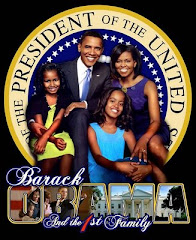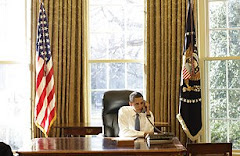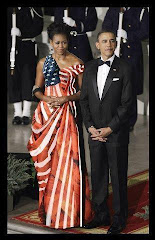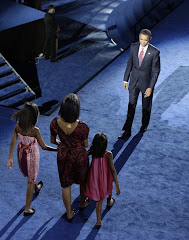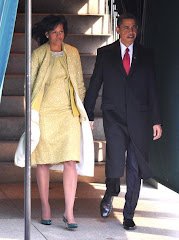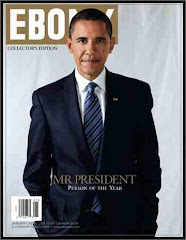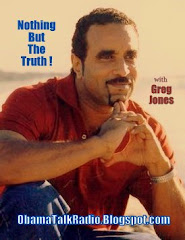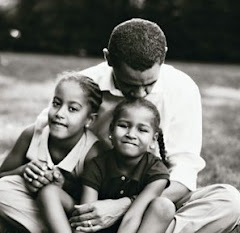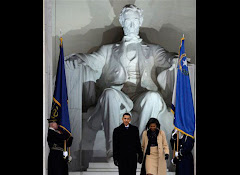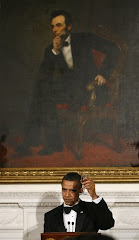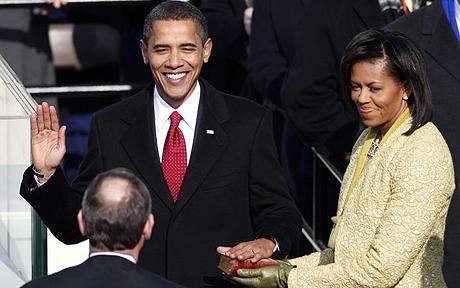 Democrats Observe A
Democrats Observe A By Dan BalzWashington Post
But the reality is that both sides have declared an effective cease-fire as they prepare to bring the party together for a general-election campaign against Sen. John McCain (R-Ariz.).
Obama (Ill.) has moved rapidly in the past 10 days to shift away from daily sparring with Clinton (N.Y.) and to begin a general-election debate with McCain that presents a fresh set of tests for his candidacy. His aides insist that he is mindful of doing nothing to suggest impatience with Clinton or to signal that she should end her candidacy before she is ready.
Clinton is soldiering on toward June 3 and the end of the primary season, and perhaps beyond, realistic about the seemingly insurmountable odds but far from giving up. Her campaign indicated yesterday that she would travel to Florida, probably tomorrow, to continue making her argument that the invalidated primaries there and in Michigan must be included to give the nomination process legitimacy. Adding the Florida and Michigan results would also move her closer to her goal of being able to claim an edge in the overall popular vote in the primaries.
But while she presses forward, aides say she is determined neither to be pushed from the race prematurely nor to be seen as doing anything to damage Obama's prospects of winning in November if he emerges as the nominee. Her campaign team believes that is the best way to bring the party together as quickly as possible once the nomination contest is over.
Her advisers say that a major reason she does not want to be pressured out of the race is that she believes it will be easier to bring her supporters over to Obama once the primaries are over if they think she was able to finish the nomination battle on her own terms.
Obama is favored to win the Oregon primary today, and Clinton is an even stronger favorite to win the Kentucky contest. But Obama will not celebrate primary night in either of those states. Instead, he has chosen to be in Iowa, where his victory in the caucuses in January turned the Democratic race upside down. There, at a rally in Des Moines, he is expected to declare that he has secured a majority of the pledged delegates currently eligible to attend August's Democratic convention in Denver.
Obama and his advisers insist the event will stop short of a declaration that he has won the nomination. But it will be seen as another signal to superdelegates to climb aboard his bandwagon as quickly as possible.
The celebration, however, has rankled the Clinton campaign and the candidate herself. They see it as a highhanded effort to embarrass her and to generate renewed calls from others in the party for her to quit the race before anyone has achieved a genuine majority of pledged delegates and superdelegates.
In a signal of how fragile the detente between the two sides is, the Clinton campaign sent out a tart memo yesterday under the name of communications director Howard Wolfson calling the Obama rally in Iowa "a slap in the face of millions of voters in the remaining primary states and to Senator Clinton's 17 million supporters." Then, in language tying the Obama campaign to the Bush White House, the memo continues: "Premature victory laps and false declarations of victory are unwarranted. Declaring mission accomplished does not make it so."
Bill Burton, an Obama spokesman, insisted that the Iowa rally would not be a declaration of mission accomplished. "Are we declaring that we've won the nomination? No." he said. But he called the expectation that Obama will secure a majority of the pledged delegates today "an important moment" that deserves a celebration.
The Clinton campaign memo would have been seen as commonplace a few weeks ago, when Obama and Clinton were in heated and often negative competition. Instead, the memo stood out -- in part because it represented a departure from the tone and rhetoric of her campaign since votes were counted in Indiana and North Carolina.
Those contests dramatically changed perceptions of the Democratic race, even though Clinton won, narrowly, in Indiana. Since then, Clinton has made significant adjustments in her campaign, all designed to signal to Obama that she recognizes the reality of where the Democratic race is heading.
She has stopped running negative ads and, on the stump, has dramatically reduced her criticism of Obama. Last week, when President Bush made comments about appeasement that were seen as critical of Obama, she might have chimed in to say that she, too, disagreed with statements by the senator from Illinois that he was prepared to meet Iranian President Mahmou Ahmadinejad without conditions. Instead she, attacked the president and McCain.
A day after the Indiana and North Carolina primaries, she was quoted as saying that Obama was having trouble winning the votes of "hardworking Americans, white Americans." The comment was seen as an effort to inject race into the Democratic campaign, but she quickly backed away from it, and that was the last time she said something critical of her rival that captured much in the way of headlines.
Obama advisers were highly irritated by her original comment, fearing that it was a sign that she would continue to hammer him all the way to the end of the race. Since then, they, too, have seen a change in the rhetoric. One Obama adviser noted yesterday that she has stopped attacking Obama for opposing a suspension of the gasoline tax during the summer and that former president Bill Clinton, campaigning over the weekend, had talked more of party unity than the differences between his wife and Obama.
But from Hillary Clinton's perspective, the Obama campaign should return the favor by being as generous to her, and to her desire to keep going until someone has clearly gained the delegates needed to win the nomination.
She suffered a major blow yesterday when Sen. Robert C. Byrd (D-W.Va.) announced that he will support Obama, even though Clinton won his home state by 41 percentage points last Tuesday, has worked with him on a measure to de-authorize the Iraq war and has courted him repeatedly.
Clinton's desire to finish the campaign in a way she is comfortable with may explain the pique with which her aides responded to reports -- overblown, according to Obama advisers -- that tonight's rally will become a victory party for the Illinois senator. Although the Democratic race appears headed for a predictable outcome, the next few weeks could determine how rapidly and fully the party comes back together. Clinton and Obama both have to play their parts carefully.
